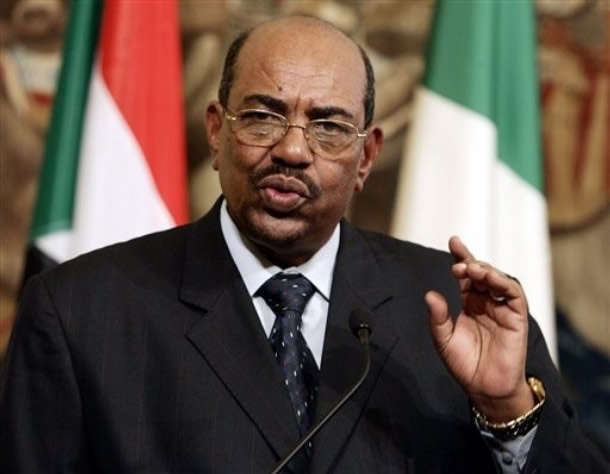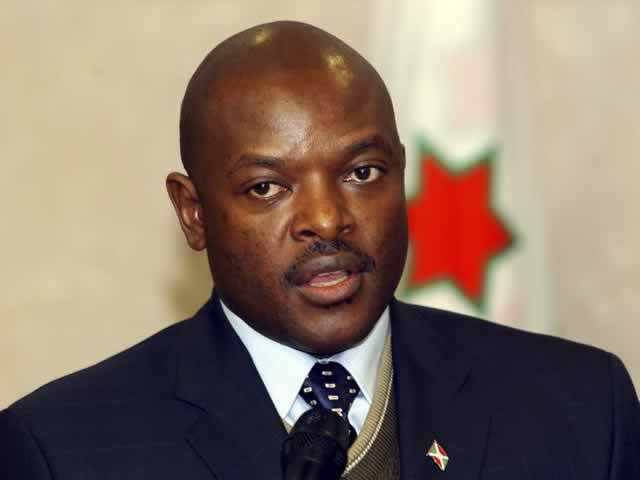SA, AU not ICC Deputy Sheriffs

Perspective Stephen Mpofu
When the Boers were in power in Pretoria they boasted that South Africa was “a First World in the Third World” and, as if to make that brag a reality, they proceeded to create a constellation of Third World states around them.
The Bantustans, or Homelands, were to serve as sources of cheap black labour for the white rulers and as markets for that apartheid state’s goods and services.
However when the Boers haven collapsed with the coming of independence to that Southern African country in 1994, the Boers did not pack their bags and leave the black ruled state, as did Rhodesians after Zimbabwe’s independence in 1980. Instead, they waited to fight another day to remove the thorn from their flesh, as they had sworn never to be ruled by kaffirs, a pejorative term that the descendants of Dutch settlers still use to describe blacks, albeit in their privacy, and that D-Day came when Sudanese President Omar Al-Bashir went to South Africa to attend the recent 25th African Union Summit there. The South African Litigation Centre – which also operates in other Sadc countries including Zimbabwe — launched a court action to have the Sudanese leader arrested on the strength of two warrants from the International Criminal Court in The Hague over alleged atrocities in the Darfur region.
But when the South African High Court in Pretoria, which had issued an interim ordering Al-Bashir to remain in the country pending the hearing of the application in court, finally decided that he should be arrested, the man had already arrived back in the Sudan.
The saga of Al-Bashir’s narrow escape from arrest in South Africa should be viewed in the context of racism by the West that set up and funds the ICC. This is because some non-African leaders known to have committed crimes against humanity have not been dragged before the ICC which becomes frenzied as far as alleged African offenders are concerned.
But neither South Africa nor the AU is the ICC’s deputy sheriff in the same way as Britain was described recently by a French official as America’s deputy sheriff in a case in which the US is alleged to have mistreated French leaders when the two countries ought to have remained bosom friends, as true allies are supposed to be.
The ICC however appears to have found itself deputy sheriffs in the South African Litigation Centre and in the white opposition in South Africa, both of which have been in the driving seat after Al-Bashir’s arrest.
In fact the Al-Bashir case became for the Democratic Alliance a big stick with which to hit President Jacob Zuma and his ANC government in hopes of discrediting them as illegitimate rulers so the people might renounce and reject their rule, in the absence of any other stronger political strategy to remove that liberation party government from power.
In the circumstances, it would be naïve or foolhardy not to believe that the West’s imperialist agents worked behind the scenes directing Salc and the political opposition in South Africa to intensify the heat against President Al-Bashir and indirectly against President Zuma who was the host of the AU summit, as well as against his government.
Consider this. If a Western diplomatic mission official in Harare can go all the way organising street vendors in the capital to oppose a government decision for their relocation to new sites being created for them as a way of decongesting the city to keep it clean and healthy, what would stop the West unleashing its hounds after the big, big political fish in the form of the Sudanese president?
The nimble contention by South African agents of imperialism’s ICC — that because it was signatory to the Rome statute setting up the International Criminal Court — South Africa should therefore have sheepishly supported the arrest warrants from the ICC and detained the Sudanese president, who was one of many African leaders attending the summit, is neither here nor there.
Like other African countries, South Africa endorsed the statute no doubt under the belief that there would be no discrimination of offenders on the basis of race or colour in its implementation – but this was not to be as alluded above.
In any case, laws are made for people and not the other way round, and if later those laws become or are deemed dysfunctional or discriminatory, they are always amended to serve humanity well.
The South African government’s rejection of the ICC order for the arrest of President Al-Bashir should be seen as an amendment of the Rome Statute, as should the African continental body’s decision that none of its leaders should be dragged by the nose to stand trial for their alleged offences before the ICC because of the bias against African leaders that has become so apparent in the way in which that court adjudicates cases involving crimes against humanity.
Probably the most glaring case of bias involves America which led an invasion of Iraq behind the back of the United Nations, arresting and killing that Arab country’s leader Saddam Hussein and many other Iraqis and in the process destabilising not just Iraq but almost the entire Arab world to this very day.
Iraq’s invasion, aided by America’s cubs, was in retaliation for Hussein’s annexation of Kuwait, then America’s oil swimming pool. Yet not a single item of so-called “weapons of mass destruction” that Washington said it was after was found. But the American President responsible for the invasion and losses of precious lives was not made to appear before the ICC, nor was he even reprimanded for using non-existent weapons of mass destruction to justify that satanic invasion. Of late, Palestinians are reported to have submitted documents to the ICC about atrocities they claim to have been committed against Palestinians in a previous war between the two countries, with Israel retorting by charging the Palestinians with war crimes.
But commentators have as late as this week been suggesting that the ICC was unlikely to prefer charges of crimes against humanity on the Israeli leadership, which is known to enjoy protection by the West.
But what does all this mean for Africa?
AU and SADC chairman, our own President Robert Mugabe, said recently when commenting on the aborted move to arrest President Al-Bashir in South Africa that Africa should set up the continent’s own ICC to try Europeans while, obviously handling with impartiality any criminal cases leveled at African leaders. But until that happens — and it must happen to end the West’s racism against African leaders — those in power must take heed of a warning by a character in one George Orwell’s satirical writing: “Big Brother is watching (you).”









Comments